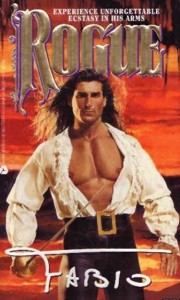Recently, an anonymous article claiming to be written by a gay man hit the internet, and stirred up quite a bit of debate in the m/m community, as to whether or not women had any place writing m/m romance.
Must be a day ending in Y, right?
But first, Mr. Anon does raise some points worth thinking about. In the past, I’ve been ambivalent about conventions where there are male strippers and naked butlers. In his article, Mr. Anon asked whether or not the attendees even bothered to learn their names or find out if this was what they were doing to go to school. And this is where he started to lose me. Now, personally, I’ve always been awkward around strippers, whether male or female, because I don’t like openly ogling people. That should be done furtively, from behind a magazine on public transport. But when it comes to objectification, that’s almost the job description of a stripper. If you’re imagining doing dirty things with them, they’ve done their job, right? And you know what, to me, seems even more uncomfortable than objectifying a stripper? Being the creepy person who asks them their real name, and whether or not they go to school, and what their hobbies are. Because, guess what? Paying someone for their time doesn’t entitle me, or anyone, to that information.
But are the writers and readers of m/m romance fetishizing gay men? Gay male characters? Sure, absolutely. But that’s less an issue with m/m as it is an issue with the romance genre as a whole. Romance, after all, is selling a fantasy. Tell me that this guy wasn’t fetishized in his day (and if you could also explain to me why he was, that’d be great):
Mr. Anon was insulted that some female fans of m/m post naked pictures of hot guys on Facebook. Sure, okay. And I was insulted that Mr. Anon assumes that all of these women are straight, married, and would yell at and slap their husbands for posting naked pictures of hot women. Wow. I hope my non-existent husband never calls me out on that double standard Mr. Anon is sure that I have. I also yell and slap things because I am a woman and lose control of my emotions too easily. Don’t worry, Mr. Anon, we’ll get to the bit about misogyny in this next paragraph.
M/m has its origins in slash fiction. It’s even retained the slash in its description. And to broadly characterize the writers and readers of the genre as straight middle-aged women just getting off on all the pretty boys overlooks the fact that slash fiction gives women a safe place to explore sexuality, free of the often misogynistic tropes of het romance, and free from the societal scorn women often face when it comes to unashamedly enjoying sex. It also overlooks the fact that many female writers of m/m aren’t straight. The large percentage of female authors writing m/m has less to do with sexuality than it does gender issues. Put simply, m/m romance allows women the “freedom of being male in their female bodies”. I’ll admit that’s why I write m/m. I cringe whenever a damsel in distress needs rescuing in het romance, but if it’s a guy that needs rescuing? I can write that without feeling guilty for adding to centuries of gender discrimination. Simplistic and hypocritical? Very probably, yes, but those are the stories I want to write, and m/m lets me do it.
Throughout his article, Mr. Anon makes the mistake of conflating m/m romance with gay literature. These are two very different genres, and two very different markets. Every complaint Mr. Anon makes against m/m romance—that the characters are fluffy, that’s there’s too much smut, that there’s not enough realism—is the exact same argument that is rolled out against het romance every single time.
Mr. Anon, it’s not m/m you have a problem with. It’s the romance genre. And the solution to that problem is to seek out different books. If you can’t find an m/m romance book where the main character is a real guy, with a real body and a real job, and real emotions, then you’re just not looking hard enough.
As always, smarter and more articulate people than me have already weighed in on this issue—many of them in the comments thread on the original article—so I’ll end by saying this. In light of this constant argument, and, in fact, with every argument about who can and can’t write certain types of books, it’s easy. If you don’t like what I write, then you absolutely have the right not to buy my books. But you can’t stop me from writing what I want to write, and you can’t stop readers from reading it. And you definitely can’t stop readers from responding in any way they choose to anything they read. It really is that simple.



Well said, as usual! And I, for one, sure hope you keep writing!!
Hear, hear!
Bravo!